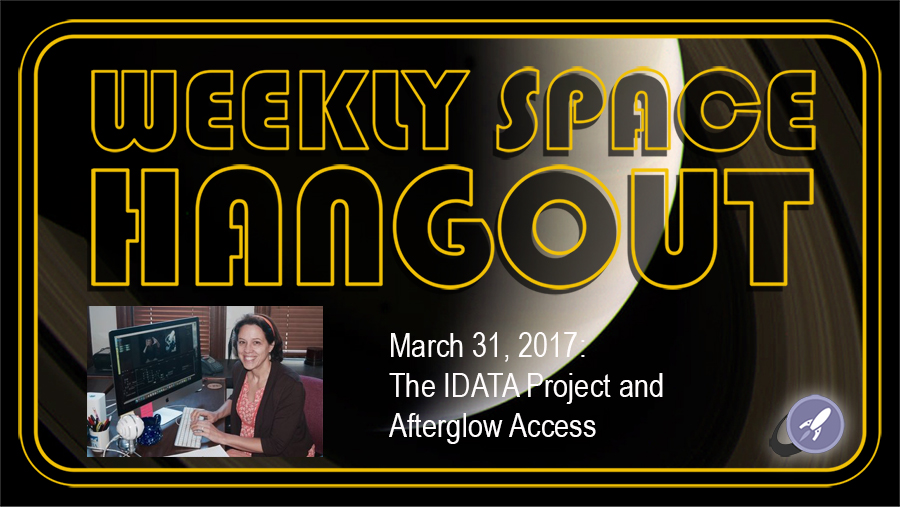Host: Fraser Cain (@fcain)
Special Guest:
This week’s special guests are Timothy Spuck, Kathryn Meredith, Dr. James Hammerman and Andreas Stefik of the Innovators Developing Accessible Tools for Astronomy (IDATA) Project Team. The IDATA project aims to design and develop Afterglow Access, a new software tool that will expand accessibility beyond touch, making the universe more accessible to those with visual impairments.
Yerkes Outreach website
Tim Spuck (email: [email protected]) (Associated Universities Inc. STEM Education Development Officer and IDATA PI) currently serves as PI on three NSF supported programs including, Innovators Developing Accessible Tools for Astronomy, the Chile-US Astronomy Education Outreach Summit, and the Astronomy in Chile Educator Ambassadors Program. Tim also remains active within the amateur astronomy community, has directed numerous outreach efforts, and led several small-scale observatory design and construction projects. He earned his Masters degree in Science Education from Clarion University or PA, and is completing his Ed.D. in Curriculum & Instruction at West Virginia University.
Kate Meredith (Yerkes Observatory – University of Chicago, Director of Education Outreach, and IDATA Project Educator) has engaged in curriculum development and project management for the Zooniverse, the Sloan Digital Sky Survey, the Lawrence Hall of Science, the Adler Planetarium Space and Science Museum, and Skynet Junior Scholars (University of Chicago Yerkes Observatory). Kate is passionate about programs that bring authentic research science to learners of all ages, languages, and abilities. As Education Lead on the IDATA project, Kate looks forward to being part of the team that takes accessibility to the next level by creating vision-neutral data acquisition and analysis tools as well as the instructional materials needed to teach new users how to use and apply those tools.
Dr. James K. L. Hammerman (TERC, Co-Director of SEEC and Senior Researcher and Evaluator, IDATA Co-PI) currently leads external evaluations for several projects, including an immersive computer environment for conducting experiments to explore causality and ecology, a state-wide initiative to engage rural youth in computing through programming an online game, and an effort to improve pedagogy among university STEM faculty. Jim has designed, implemented, and researched mathematics and science education curricula and professional development programs, as well as technology tools that support inquiry-oriented learning. Jim is especially interested in adult developmental differences in professional development, data and statistics learning, online and software tools that support exploration, and supporting deeper learning and more reflective practice in professional communities.
Andreas Stefik (University of Nevada – Las Vegas, Assistant Professor of Computer Science and IDATA Co-PI) – For the last decade, Dr. Stefik has been creating technologies that make it easier for people, including those with disabilities, to write computer software. With grants from the National Science Foundation, he helped establish the first national educational infrastructure for blind or visually impaired students to learn computer science. He is the inventor of Quorum, the first evidence-oriented programming language. As part of his work, he is a PI on the NSF-funded AccessCS10K grant that is helping CS 10K projects prepare K-12 teachers to be more inclusive in their computing courses with students with disabilities. Most recently, Dr. Stefik was honored with the 2016 White House Champions of Change award in computer science education.
Accessibility links mentioned in the show:
Quorum Language
CS for All
CS for All links
Guests:
Morgan Rehnberg (MorganRehnberg.com / @MorganRehnberg)
Their stories this week:
SpaceX relaunches a rocket for the first time
NASA fleshed out its human Mars program
We use a tool called Trello to submit and vote on stories we would like to see covered each week, and then Fraser will be selecting the stories from there. Here is the link to the Trello WSH page (http://bit.ly/WSHVote), which you can see without logging in. If you’d like to vote, just create a login and help us decide what to cover!
If you would like to join the Weekly Space Hangout Crew, visit their site here and sign up. They’re a great team who can help you join our online discussions!
If you’d like to join Fraser and Paul Matt Sutter on their tour to Iceland in February 2018, you can find the information at astrotouring.com.
We record the Weekly Space Hangout every Friday at 12:00 pm Pacific / 3:00 pm Eastern. You can watch us live on Universe Today, or the Universe Today YouTube page

